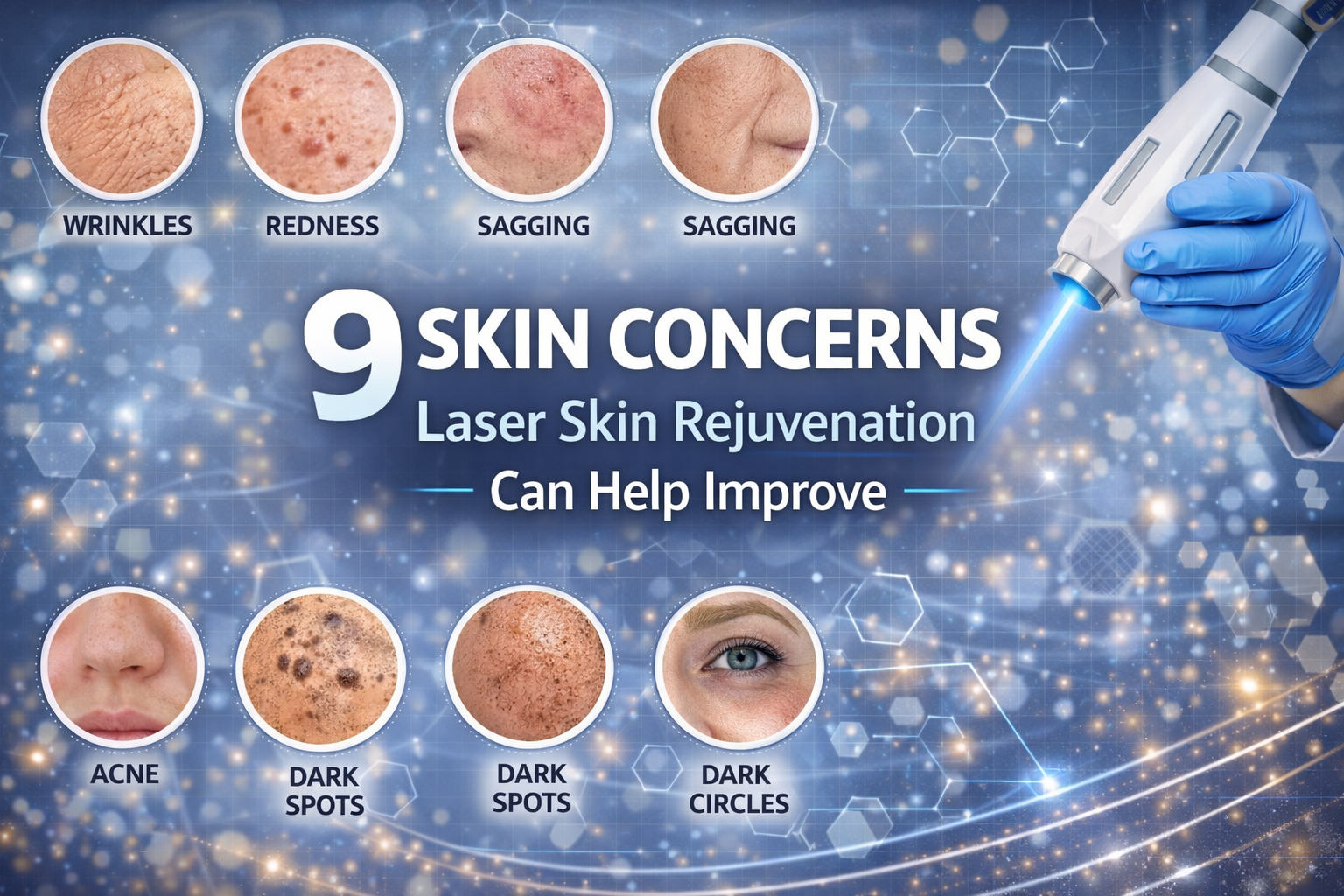Can Botox Benefit Me Emotionally?
Are you tired of seeing fine lines and wrinkles when looking in the mirror? Have you felt like your self confidence and emotional well being is impacted by your skin’s appearance? Botox can be a great answer to better skin from fine lines and wrinkles, as well as boost your self image! Keep reading to learn more about Botox, how it can help better your mind and mood, and why using this treatment in a full facial rejuvenation plan can help!
What is Botox?
As we age, our skin produces much less collagen and elastin. The sun, genetics, age, and other lifestyle factors can start to play a role when it comes to lines and wrinkles on the skin. Fortunately, Botox can help address this! Botox injections are used to momentarily freeze specific facial muscles, putting a temporary hold on them and keeping them from contracting and further stretching the skin. This in turn greatly slows down the development of lines and wrinkles.
How Can Botox Benefit Me Physically?
With more than 8.8 million Botox injections being administered globally in the year 2023, there’s a reason why this innovative treatment is so popular among people. If you are looking to treat lines and wrinkles that have started to show your age, this minimally invasive procedure can help! How can Botox benefit you? This injection treatment can be used to show aging skin markers like:
Glabellar lines- Crow’s feet
- Forehead lines
- Frown lines
- Smile lines
- Brow wrinkles
And much more! Don’t let wrinkles ruin your year. Instead, turn to a treatment that can help rewind time on your skin. Botox administration takes minutes to complete, and you can reap the results of this treatment for about 3 to 4 months! Talking with a provider at The Studio Med Spa can help you learn more about the benefits of Botox as well!
How Can Botox Boost My Mood?
Social media and other outside forces have forced many people to be more aware of their appearance. While this can have ups and downs, personal self image can take an impact when we look into the mirror and see new lines and wrinkles that we feel weren’t there months before. Self-perception can be key when it comes to how we live our daily lives, and when this is warped, it can have negative results. If you find yourself impacted by aging markers in the skin, Botox can have very beneficial results. In fact, one study found that patients’ self confidence increased greatly when using Botox for upper face wrinkles.
Botox in the forehead area particularly has also been shown to provide significant improvements for mood. Some patients have reported improvements in symptoms of anxiety and depression with Botox injections. At a biochemical standpoint, Botox is thought to positively influence serotonin and noradrenaline, which are key chemicals in mood regulation. Not to mention, Botox is believed to help reduce activity in the amygdala, which is the part of the brain linked to feelings of fear and stress in people.
Should I Create a Full Facial Rejuvenation Plan?
Many people wonder, what exactly is a full facial rejuvenation plan? This is a custom skin revitalizing plan created with a med spa. Oftentimes, this plan can target a sagging and aged appearance to the skin. The results may look like youthful skin that is much more even in tone and texture, with a reduction in the appearance of fine lines, wrinkles, acne scars, and other skin issues. These types of plans can have positive impacts on patients' physical and emotional states, especially when regaining self confidence.
Where Does Botox Fit in My Plan?
Botox can be combined with other aesthetic treatments for the best results. For example, Botox is often combined with microneedling treatments. Microneedling involves using a pen-like tool to create surface injuries to the skin. While healing, the skin boosts the production of new collagen-rich tissue, which leads to a firmer appearance. By combining this treatment with Botox, many patients are happy to see the results of glowing and youthful skin with reduced fine lines and wrinkles. If you find your mood and self confidence impacted by your appearance, a full facial rejuvenation plan with Botox can help better your self perception greatly.
What is Baby Botox?
If you’re not ready to commit to a full dose of Botox, Baby Botox may be the perfect choice for you. This form of treatment uses localized micro-injections, which help to soften lines in the face for a more subtle and natural appearance. Baby Botox can also be used for preventative measures. If you are eager to dip your toes into Botox with your facial rejuvenation plan, but aren’t ready to fully commit, Baby Botox can be the right choice for you. Baby Botox can bring some positive results in terms of emotional and mental wellness, too.
Visit The Studio Med Spa!
As we age, our skin is impacted by a number of outside factors. The results of aging and watching our appearance shift can be distress, sadness, and other negative emotions. You may find that your self confidence has gone downhill, or it’s difficult to partake in activities you usually love because of the idea of your aging skin. Fortunately, Botox can help both physically and emotionally. If you are eager to learn more about this treatment, as well as creating a possible facial rejuvenation plan, contact The Studio Med Spa!




